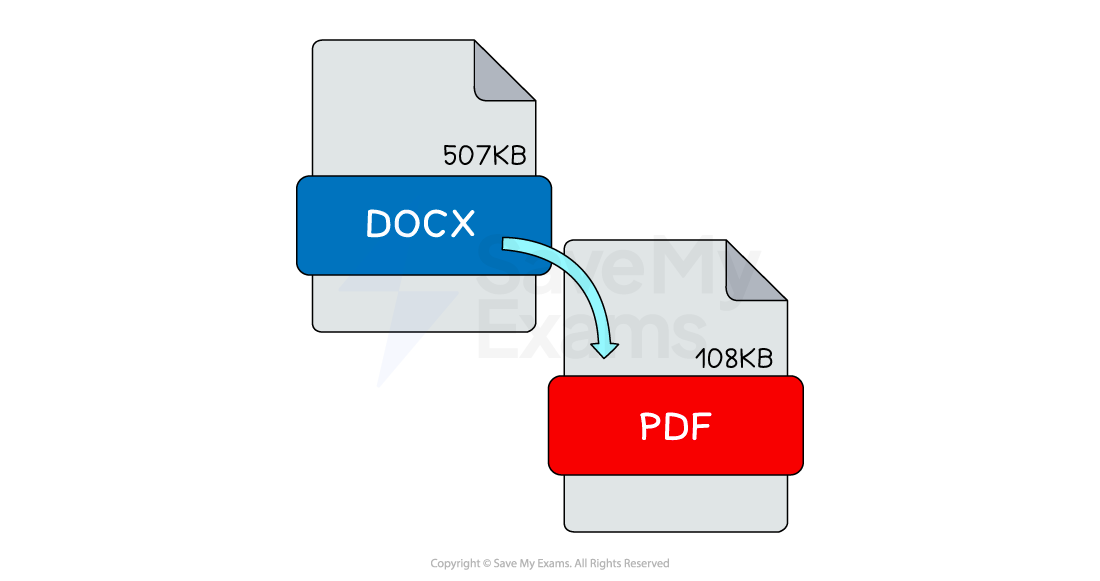Sarah uses her computer to record an audio file of herself narrating a video for work.
She emails her recording to friend for proofing. She uses lossy compression to produce the sound file.
Explain two reasons why using lossy compression is beneficial. [4]
How to answer this question
- What are the differences between lossy and lossless?
- Can you state two differences? [2 marks]
- Can you say why each point is a benefit? [2 marks]
Answer
- Lossy will decrease the file size [1]
- ...so it can sent via email quicker [1]
- Lossy means data is lost [1]
- ...the difference is unlikely to be noticed by humans [1]



